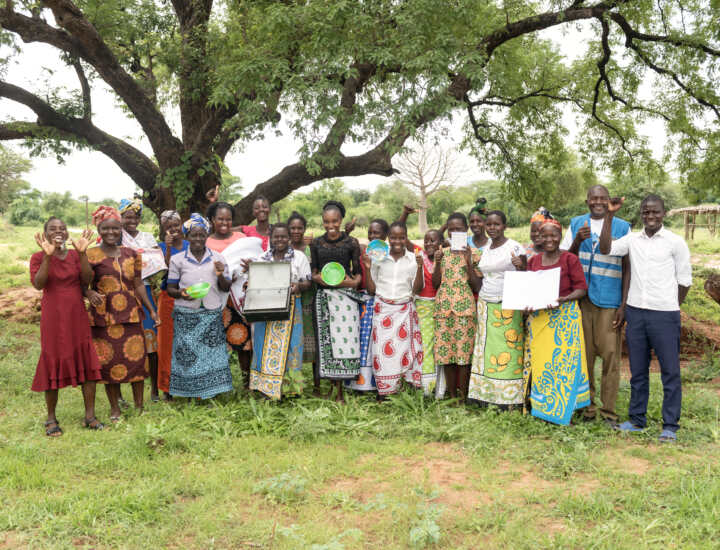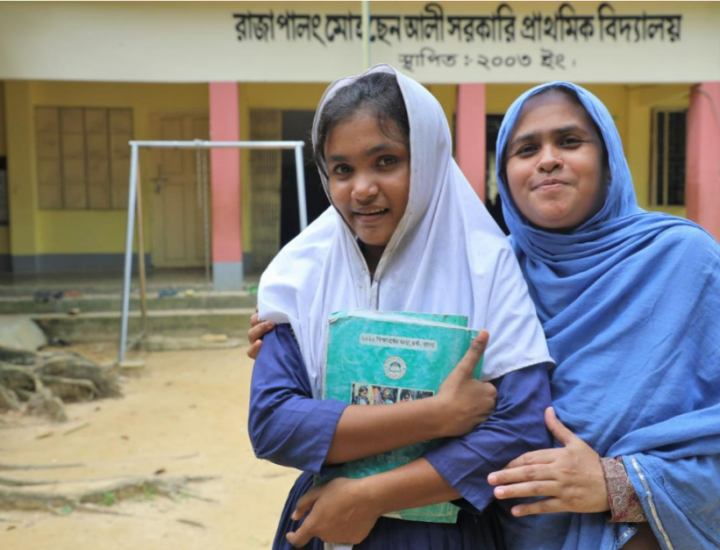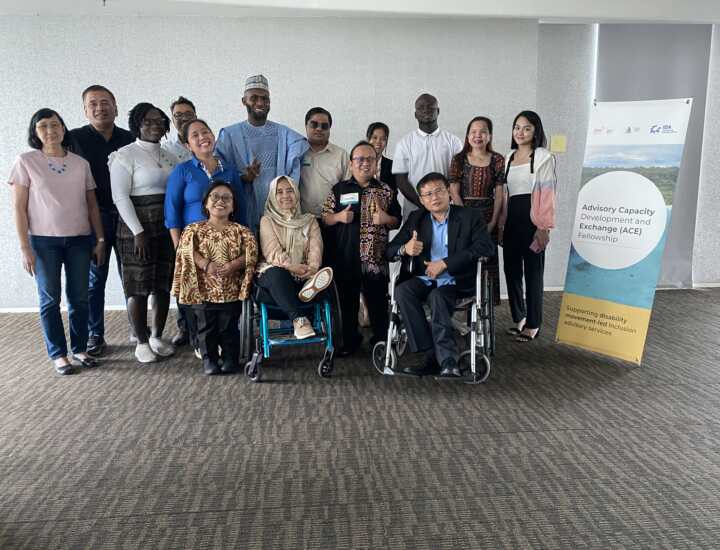What's inside our report?

Our Achievements in 2024
1. Becoming increasingly locally led
CBM has a long history of operating as a partner-based organisation rather than implementing directly. We believe that cooperation, collaboration, and partnerships are key to achieving our impact. In 2024, we continued to pursue authentic and equal partnerships based on trust and respect, and the strong representation of people with disabilities and voices from the countries where we work across all of our activities. The CBM Global board approved a set of localisation commitments that were finalised after consultation with our Localisation Steering Group, a body established to give space to a range of OPD representatives to share their vision of what power shift in partnerships would look like for CBM Global and to advise us on the direction and pace of changes needed to our structures, systems and ways of working. An action plan is now in place to deliver on each localisation commitment. We also made preparations for a partner feedback exercise in 2025, following on from the previous exercise carried out in 2022. This initiative will enable us to receive feedback from our partners on progress over the past three years and learn where we are doing well and what we can further improve.


2. Partnerships within the disability movement
We are committed to partnering with, strengthening, listening to, and learning from OPDs and the wider disability movement, driving localised change guided by a human rights approach. In 2024, in keeping with our Global Disability Summit commitments, we further increased the levels of funding flowing to our OPD partners and undertook a number of programmes focused on organisational strengthening. Aligned with our documented approach to working with the disability movement, our Inclusion Advisory Group (IAG) worked with OPDs and individual activists to achieve their agendas through providing technical advice to influence mainstream partners. Throughout the year, we particularly worked on the capacity of the disability movement to influence through technical advice, wrapping up our Advisory Capacity development and Exchange fellowships and designing new projects that grow engagement at different levels in the coming years.
3. Working with those most left behind
In 2024, we took further steps to ensure our programmes worked with the most at-risk people, especially under-represented groups who are typically left behind or considered harder to reach. We pursued partnerships that worked at the intersection of gender and disability, responding to women’s exclusion and meeting their needs and interests. For example, in Nepal, we worked with under-represented groups across impairment types, caste, ethnicity and gender, including activities with Dalit communities living in geographically remote areas in Karnali Province.


4. Comprehensive and integrated programming
In 2024, we continued to expand comprehensive and integrated programming, building on individual and community level engagement, and using our community-based inclusive development approach. This included ensuring holistic and person-centered care and equitable access to health for people with disabilities. One such example was a holistic and inclusive neglected tropical diseases (NTDs) project in Nigeria undertaken in partnership with the Health and Development Support Programme (HANDS). The CiSKuLA project demonstrates a model that caters to the wellbeing of people affected by NTDs and people with disabilities by providing a comprehensive healthcare, anti-stigma, and livelihoods package while promoting inclusion.
5. Celebrating a one-year milestone for our climate advocacy roadmap
In 2024, we celebrated the first year of implementing our climate advocacy roadmap – and it was a busy year. Our work focused on partnering with OPDs and disability activists to produce a capacity-building programme that was rolled out in partnership with UN partners, climate activists, and policy makers in six countries. In pursuit of our role as a good ally, we continued in 2024 to work alongside OPDs and disability activists engaging with the UNFCCC for the recognition of a disability constituency. We also supported the Africa Albinism Network’s launch of its global campaign on sunscreen protection for persons with albinism.


6. Scaling up our inclusion advisory work
In 2024, our Inclusion Advisory Group continued to support mainstream organisations across the globe to meaningfully include people with disabilities in their work. Our continuing global partnerships included providing a disability helpdesk for the World Food Programme, developing front-line worker training packages for UNICEF, as well as our work with the Abilis Foundation and the Climate Investment Fund. Our local teams continued to grow their advisory partnerships, working with the Red Cross, CAFOD, Caritas, DT Global, World Vision, Tróchaire and Catholic Relief Services, amongst others.



